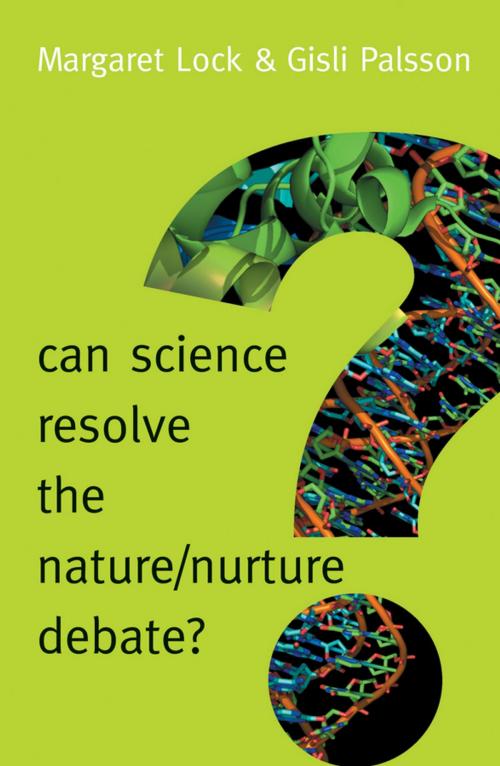Can Science Resolve the Nature / Nurture Debate?
Nonfiction, Reference & Language, Education & Teaching, Teaching, Teaching Methods| Author: | Margaret Lock, Gisli Palsson | ISBN: | 9780745690001 |
| Publisher: | Wiley | Publication: | June 20, 2016 |
| Imprint: | Polity | Language: | English |
| Author: | Margaret Lock, Gisli Palsson |
| ISBN: | 9780745690001 |
| Publisher: | Wiley |
| Publication: | June 20, 2016 |
| Imprint: | Polity |
| Language: | English |
Following centuries of debate about "nature and nurture" the discovery of DNA established the idea that nature (genes) determines who we are, relegating nurture (environment) to icing on the cake.
Since the 1950s, the new science of epigenetics has demonstrated how cellular environments and certain experiences and behaviors influence gene expression at the molecular level, with significant implications for health and wellbeing. To the amazement of scientists, mapping the human genome indirectly supported these insights. Anthropologists Margaret Lock and Gisli Palsson outline vituperative arguments from Classical times about the relationship between nature and nurture, furthered today by epigenetic findings and the demonstration of a "reactive genome." The nature/nurture debate, they show, can never be put to rest, because these concepts are in constant flux in response to the new insights science continually offers.
Following centuries of debate about "nature and nurture" the discovery of DNA established the idea that nature (genes) determines who we are, relegating nurture (environment) to icing on the cake.
Since the 1950s, the new science of epigenetics has demonstrated how cellular environments and certain experiences and behaviors influence gene expression at the molecular level, with significant implications for health and wellbeing. To the amazement of scientists, mapping the human genome indirectly supported these insights. Anthropologists Margaret Lock and Gisli Palsson outline vituperative arguments from Classical times about the relationship between nature and nurture, furthered today by epigenetic findings and the demonstration of a "reactive genome." The nature/nurture debate, they show, can never be put to rest, because these concepts are in constant flux in response to the new insights science continually offers.















